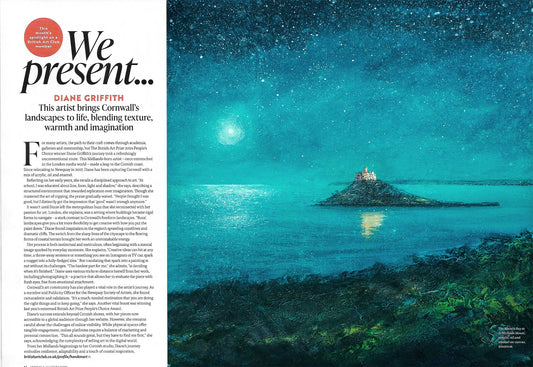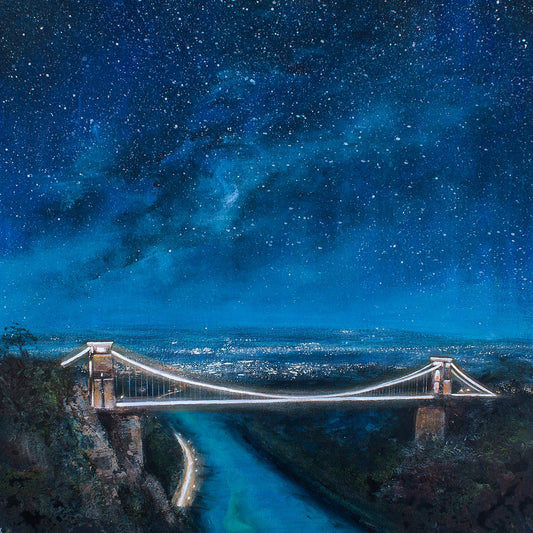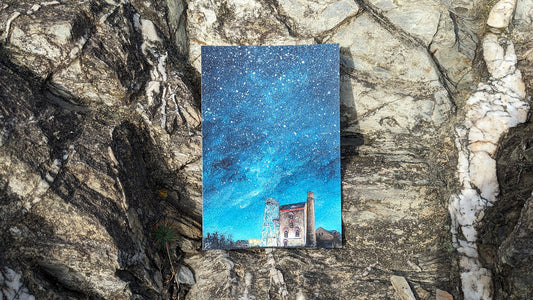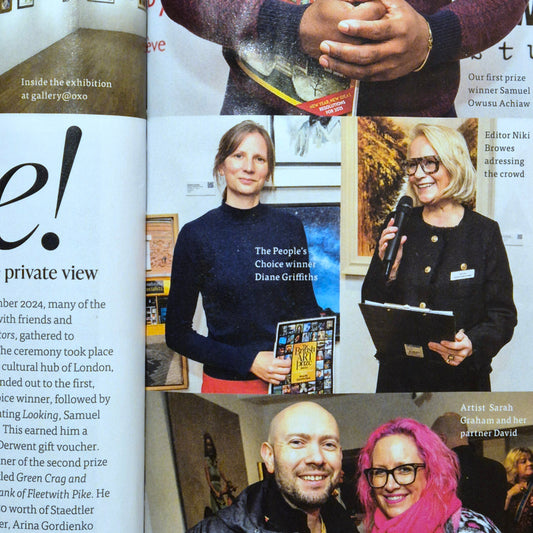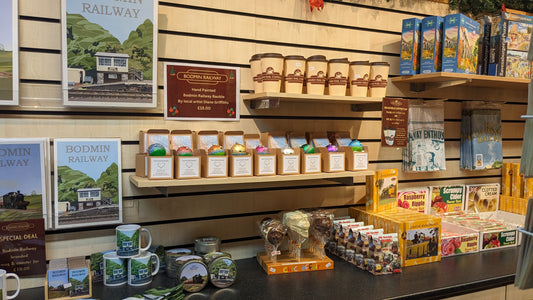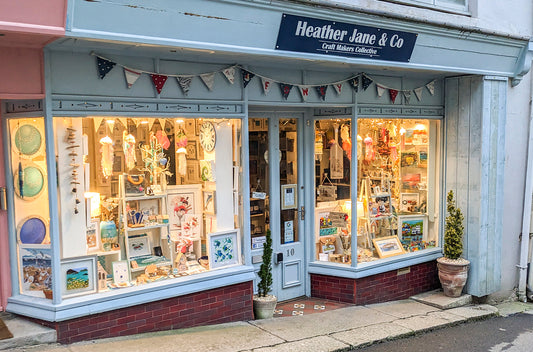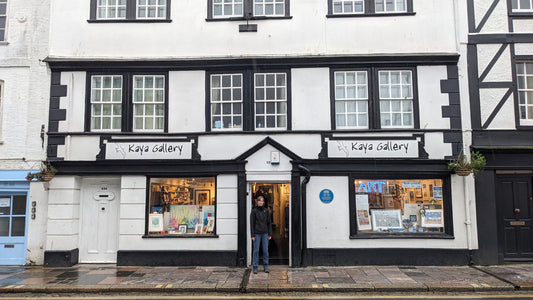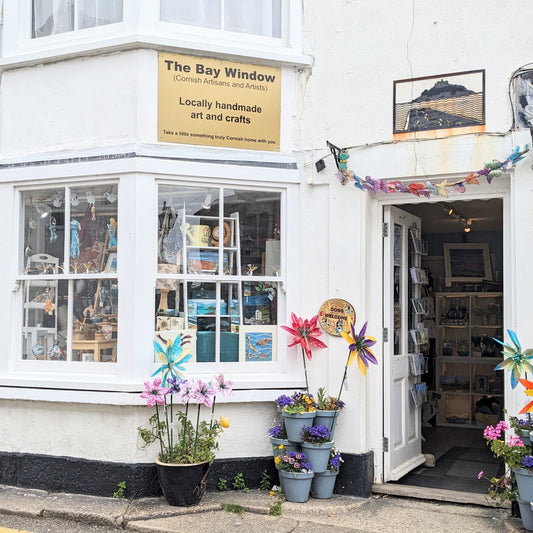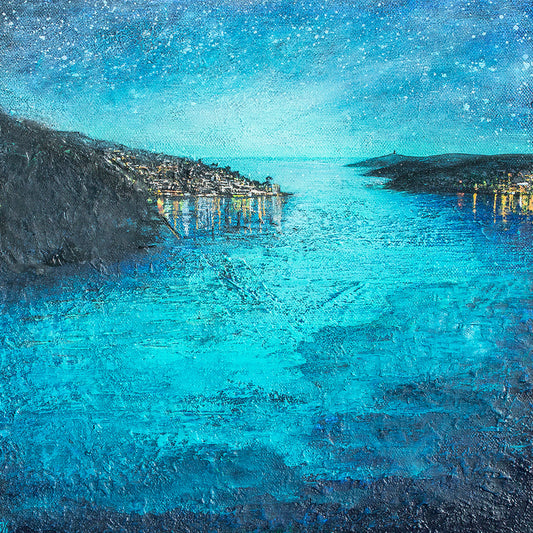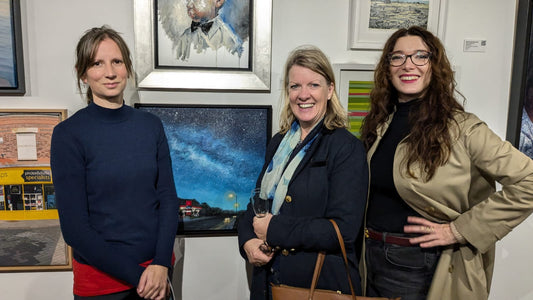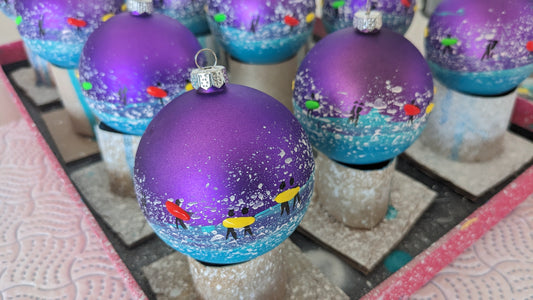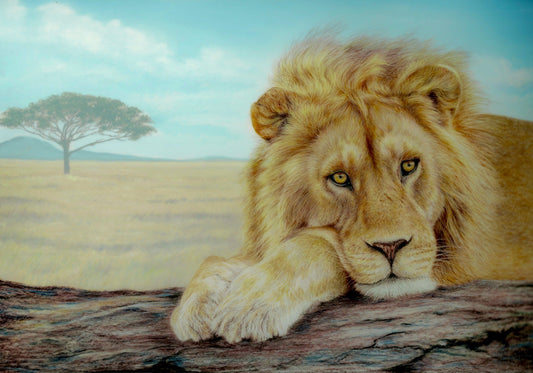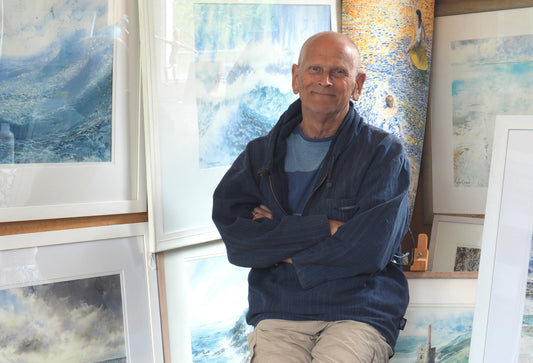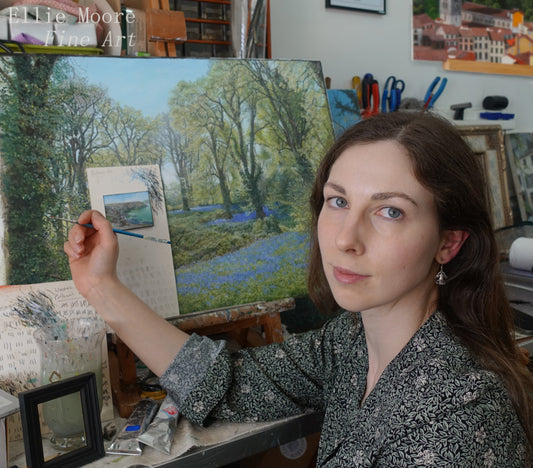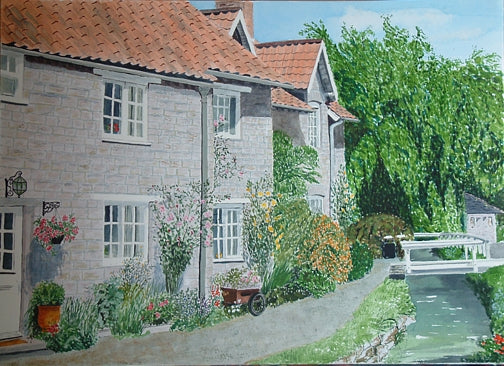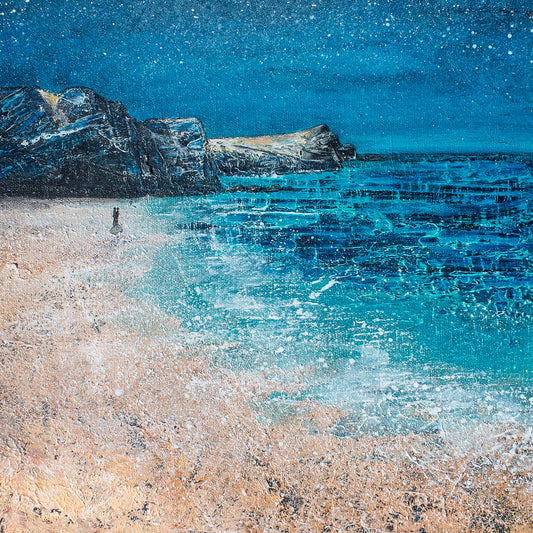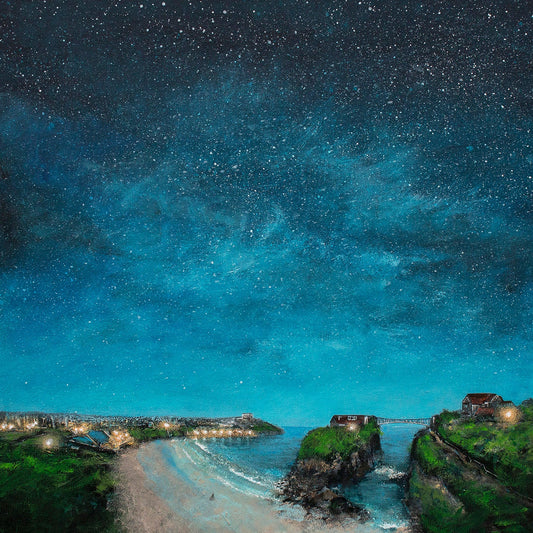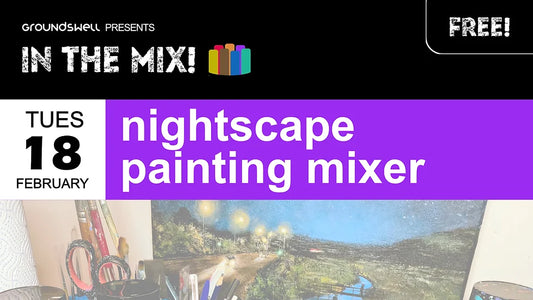Artist Interview - Sophie Penstone
Share
I've always been a fan of Sophie's work and was very much looking forward to the Newquay Society of Artist's demonstration evening in Feb 2024.
Sophie's work is deceptively simple to watch as she talked us through her approach; using only 5 or 6 colours in a painting, she always aims to reduce detail and allow the jeopardy of watercolour to take you on a journey and let the painting emerge. We see the initial washes and colour blend together, then blocks of colour going in to provide the structure of the landscape, followed by lifting off elements for highlights and finishing details.
This sounds very organic and sporadic but don't be fooled; you can tell there is a lot of juggling going on as she works quickly with the water; always having to think one step ahead, as well as reacting to what's happening now and making the marks count. She will only do 3 to 4 layers on a painting, so they need each to play their part.




After this demonstration I knew that I wanted to ask Sophie more about her art.
I grew up in West Sussex drawing and painting as early as I can remember. My childhood was spent entering local art competitions at the village fete and either climbing trees or working out in my mind how to draw them successfully. I loved art at school and quickly realised that it was something I was potentially good at and started mentally imagining how I could combine painting all day with making a living! I went to Art college and subsequently gained a BA Hons in Illustration but knew half way through that illustration wasn't for me. I wanted to paint what I wanted to and what inspired me and wasn't particularly good at following a written brief! After moving down to Cornwall, over 20 years ago, I began selling my watercolours through local galleries whilst working full time alongside this. About 10 years ago I reached a turning point in my life and gave up the day job to paint full time, and haven't looked back.
When i was about 23 I painted an acrylic of sunlight in the woods on a scrap of old mountboard and ended up entering it into a national competition on a whim. Remarkably it won first prize and I was subsequently awarded the overall title of 'Young Artist Of The Year'. It was so out of the blue and I am so proud of that achievement and painting, partly because it was based on the woodland that I had grown up next to and also because the news came days before my beloved Granny passed away, but she had been told of my achievement just before she passed.

'September Crunch', the painting Sophie was awarded 'Young Artist Of The Year' with in 2001
For me, as a watercolourist, I find it is easier to know that a painting has reached its finished state as the paints' transparent qualities are important for me to celebrate and overworking is easy so stopping before the paint gets muddied is essential in my process.
4. This next question is a tricky one, but it's one I've been pondering for a while. How do you define success as an artist?
I think defining your own success as an artist is extremely individual. For me it is purely about knowing that I am moving forwards with my skills as a watercolourist and always improving, painting pieces that I am pleased with that have pushed the medium further than the last painting and recognising that people like what I have done enough to part with their hard earned money and keep it forever because it has spoken to them. I never get used to somebody buying my work, classic imposter syndrome, and each sale is a small win for me that I am on the right path with my technique and choice of subject matter. Being able to paint everyday and make a living from what I do, for me, is a success and as long as I can maintain the balance of painting what inspires me and selling my work I am winning!
5. Inspiration is an important part of creating art, but also so its evolving and growing as an artist. How do you develop your art skills?
I develop my art skills by painting everyday. With anything in life, the more you do something, the more you develop or learn knew things so this is essential, especially with watercolour as it is so unpredictable. I love looking at other peoples work and visit exhibitions and galleries as much as possible. Pre covid I was attending weekly life drawing sessions and this is something I would like to return to. I am also keen to try out new techniques I have never explored such as cyanotype printing and am looking for local courses to do so.
My website is www.penstoneart.com and email is s.penstone@btopenworld.com. My studio is always open by appointment 07875 071 101.

Sophie's watercolour painting of The River Thames, London, that last year was awarded The St Cuthbert's Mill Award in the 2023 TALP competition!
I've loved this interview - Sophie is open and honest about her work, I completely relate to her discovery at school that art was something that she was good at and that thought about trying to find a way to combine painting and earning a living! Her touching story about her early success and her Gran finding out just in time is lovely (somehow Grandparents are always the most supportive)!
Sophie is an artist of experimentation rather than technicality, of embracing the challenge of how to use the watercolour rather than how to paint the scene. Yet she creates that magic by using her experience, talent and pure daily practice; balancing masterful knowledge of her art with fun. Now that's something to aspire to.
Thank you so much Sophie - lovely interview!
